Search
Did you mean: Ephesus?
Remove Ads
Advertisement
Summary 
Loading AI-generated summary based on World History Encyclopedia articles ...
Search Results
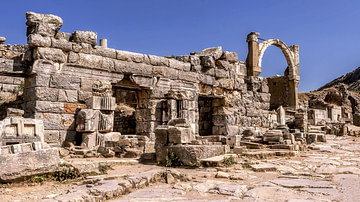
Definition
Ephesus
According legend, Ephesus (also Ephesos) was founded by the tribe of the Amazons, great female warriors. The name of the city is thought to have been derived from "Apasas", the name of a city in the "Kingdom of Arzawa" meaning the "city of...

Image
Curetes Street, Ephesos
Leading from the Heracles Gate to the Celsus Library, Curetes street (named after the priest class of Ephesos) was lined with colonnaded galleries, various temples, store rooms and houses, and statues of the city's benefactors (of which the...

Image
Heraclitus of Ephesos
Heraclitus of Ephesos, painting from the 17th century by Johannes Moreelse.
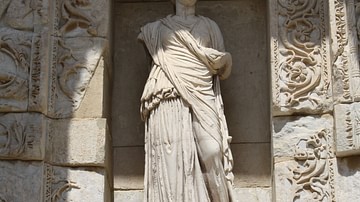
Image
Sophia-Wisdom, Celsus Library, Ephesos
A detail of the facade of the Celsus Library in Ephesos (c. 117 CE). The statue represents
wisdom (sophia), an attribute associated with the former proconsul Celsus to whom the building was dedicated.
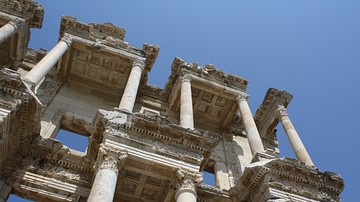
Image
Celsus Library Facade, Ephesos
A deatil of the facade of the library of Ephesos (c. 117 CE).
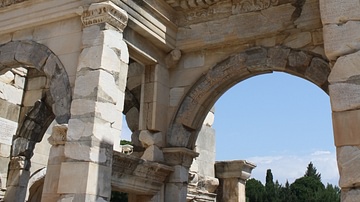
Image
Agora Gate, Ephesos
The Mazeus-Mithridates Gate, consisting of three arched entrances, led from the library of Celsus to the Roman Agora of Ephesos. It was built by and named after two emancipated slaves of emperor Augustus in 4 or 3 BCE, who dedicated the gate...
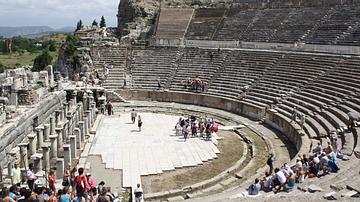
Image
Stage, Theatre of Ephesos
First constructed in the reign of Lysimachos (early 3rd century BCE), the theatre is built into a natural hill and construction evolved through Hellenistic and Roman times. The seated area (or cavea) was larger than a semi-circle and 38m...
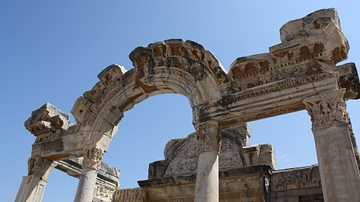
Image
Temple of Hadrian, Ephesos
A detail of the temple dedicated to the Roman Emperor Hadrian, Ephesos (2nd century CE). The temple consisted of an outer porch - with four frontal columns, triangular pediment and arch - and an inner cella.
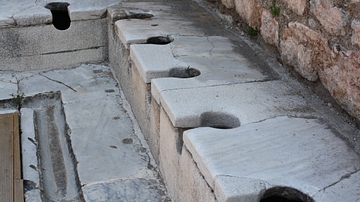
Image
Roman Latrine, Ephesos
The communal latrine at Ephesos. Fresh water continuously ran down the channel in the floor in front of the seats for users to wash their hands (1st century CE).
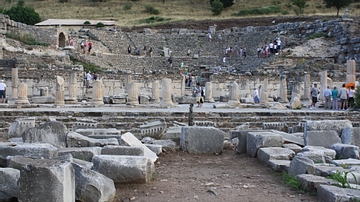
Image
The Odeion, Ephesos
The Odeion (or small theate) of Ephesos was built in the second century CE and was used as both a meeting chamber and for entertainment. The marble seats gave a capacity of approximately 1,400.